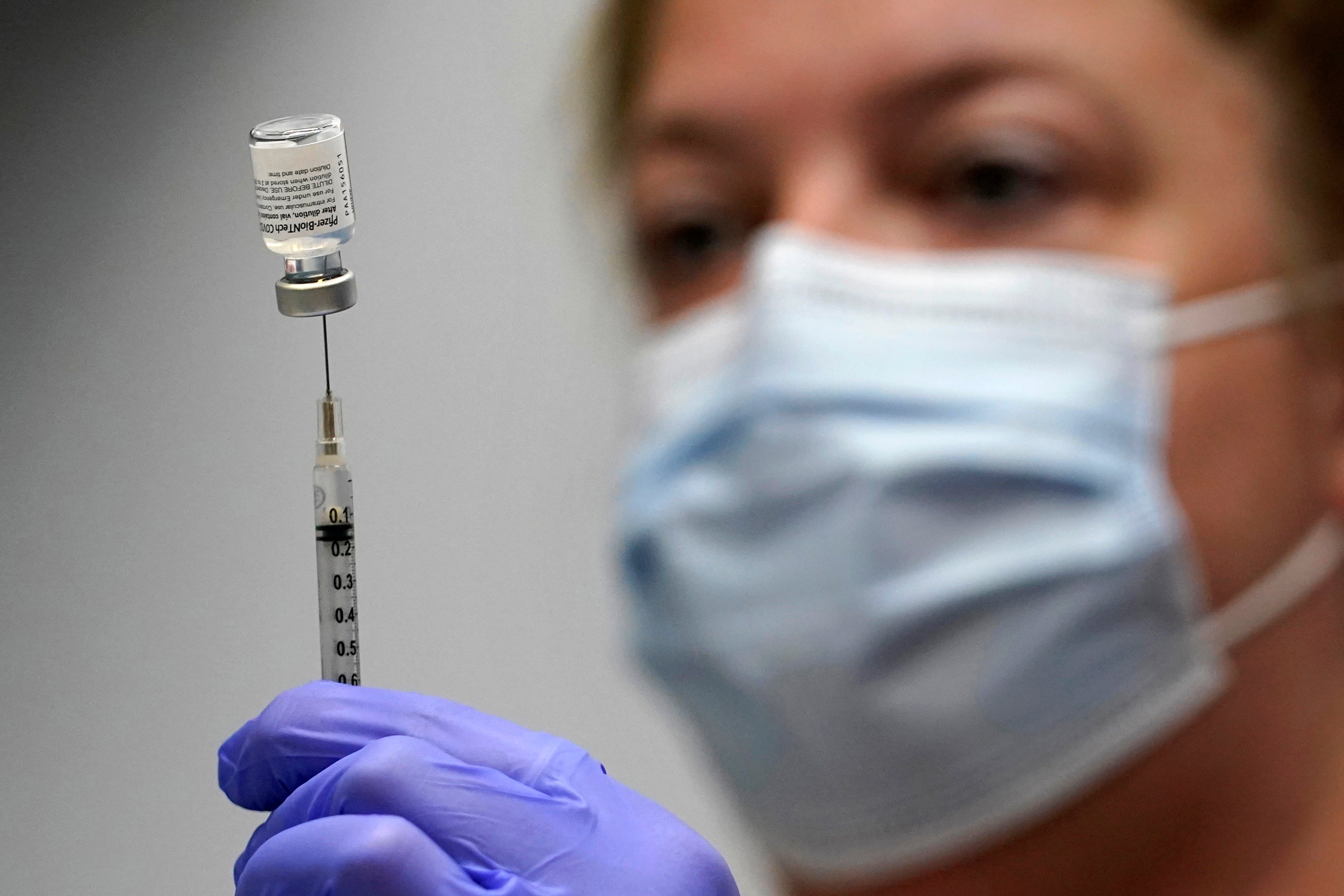FDA panel is first key test for Biden COVID-19 booster plan
Government advisers are debating whether to recommend extra doses of the Pfizer vaccine, a key step toward the Biden administration's plan to dispense COVID-19 booster hots to most Americans

Your support helps us to tell the story
From reproductive rights to climate change to Big Tech, The Independent is on the ground when the story is developing. Whether it's investigating the financials of Elon Musk's pro-Trump PAC or producing our latest documentary, 'The A Word', which shines a light on the American women fighting for reproductive rights, we know how important it is to parse out the facts from the messaging.
At such a critical moment in US history, we need reporters on the ground. Your donation allows us to keep sending journalists to speak to both sides of the story.
The Independent is trusted by Americans across the entire political spectrum. And unlike many other quality news outlets, we choose not to lock Americans out of our reporting and analysis with paywalls. We believe quality journalism should be available to everyone, paid for by those who can afford it.
Your support makes all the difference.The Biden administration’s embattled plan to dispense COVID-19 booster shots to most Americans faced its first major hurdle Friday as a government advisory panel met to decide whether to endorse extra doses of the Pfizer vaccine.
Scientists inside and outside the government have been divided in recent days over the need for boosters and who should get them, and the World Health Organization has strongly objected to rich nations giving a third round of shots when poor countries don’t have enough vaccine for their first.
The panel, made up of outside experts who advise the Food and Drug Administration, weighed a less than clear-cut case: While research suggests immunity levels in those who have been vaccinated wane over time and boosters can reverse that, the Pfizer vaccine is still highly protective against severe illness and death, even amid the spread of the highly contagious delta variant.
The FDA experts were scheduled to vote on one basic question: Does the evidence show that a Pfizer booster would be safe and effective for people 16 and older? In the event of a yes vote, the FDA is expected to quickly approve boosters for Pfizer's shot.
But that is just one step in the process. The more thorny question of who should get the shots and when will be debated next week by advisers to the Centers for Disease Control and Prevention. The CDC generally adopts the group’s recommendations, which set policy for U.S. vaccination campaigns.
Some group members have made clear they favor giving third doses to older people, nursing home residents and front-line health care workers, rather than all adults.
Separate FDA and CDC decisions will be needed for people who received the Moderna or J&J shots can get boosters.
Friday’s meeting came as the delta variant continues to drive U.S. cases and deaths back to levels not seen since last winter. That has given urgency to efforts by top health officials to shore up Americans' protection against the virus.
Dr. Peter Marks, FDA’s top vaccine regulator, acknowledged the intense disagreements in opening remarks to the agency's advisory panel.
“We know there may be differing opinions in interpreting the data,” he said. “We strongly encourage all the different viewpoints to be voiced and discussed regarding the data which is complex and evolving.”
President Joe Biden’s top health advisers, including the heads of the FDA and CDC, first announced plans for widespread booster shots a month ago, targeting the week of Sept. 20 as an all-but-certain start date. It said boosters would be dispensed eight months after the second dose of the Pfizer and Moderna vaccines.
But that was before FDA staff scientists had completed their own assessments of the data. Some experts questioned whether Biden was breaking his own pledge to “follow the science” on COVID-19 by getting out ahead of government scientists.
Earlier this week, two top FDA vaccine reviewers joined a group of international scientists in publishing an editorial rejecting the need for boosters in healthy people. The scientists said continuing studies show the shots are working well despite the delta variant.
Pfizer was expected Friday to present data suggesting immunity from its vaccine begins to wane somewhere around six to eight months after the second dose.
The panel was also set to hear from Israeli health officials, who began offering boosters over the summer. Officials there tracked about 1 million people 60 and older and found that those who got the extra shot were far less likely to become infected soon afterward.
___
The Associated Press Health and Science Department receives support from the Howard Hughes Medical Institute’s Department of Science Education. The AP is solely responsible for all content.